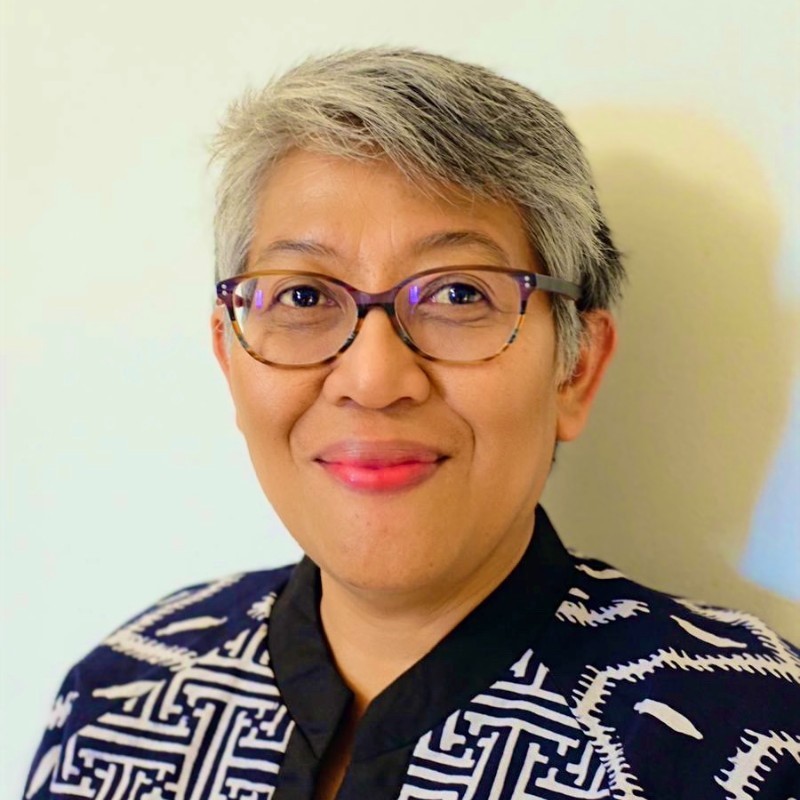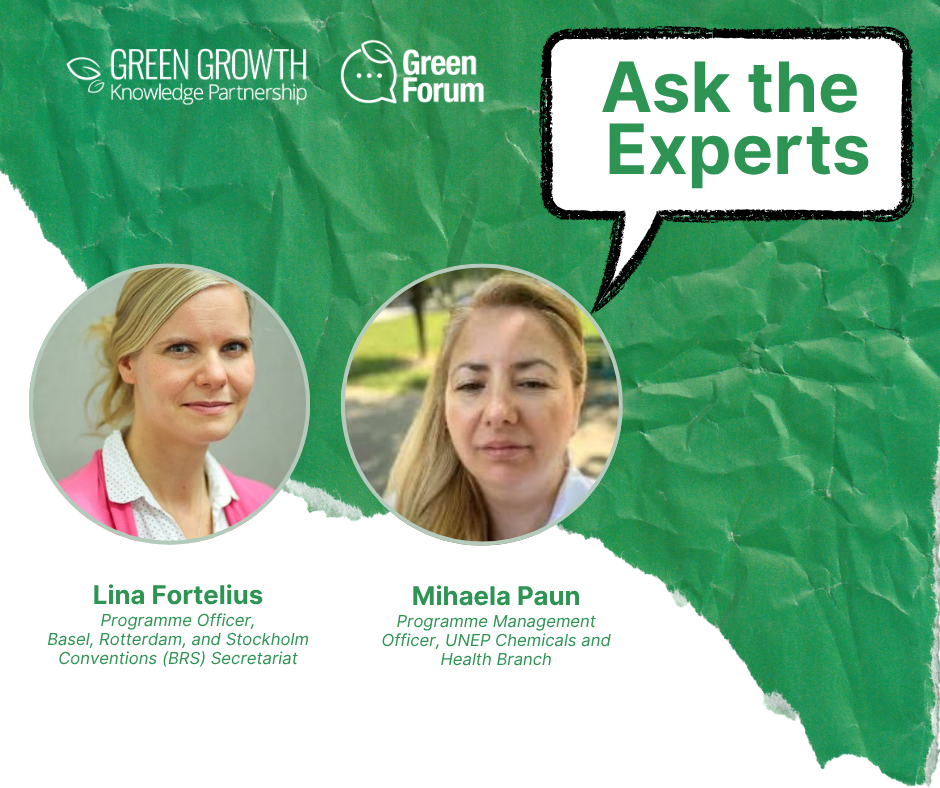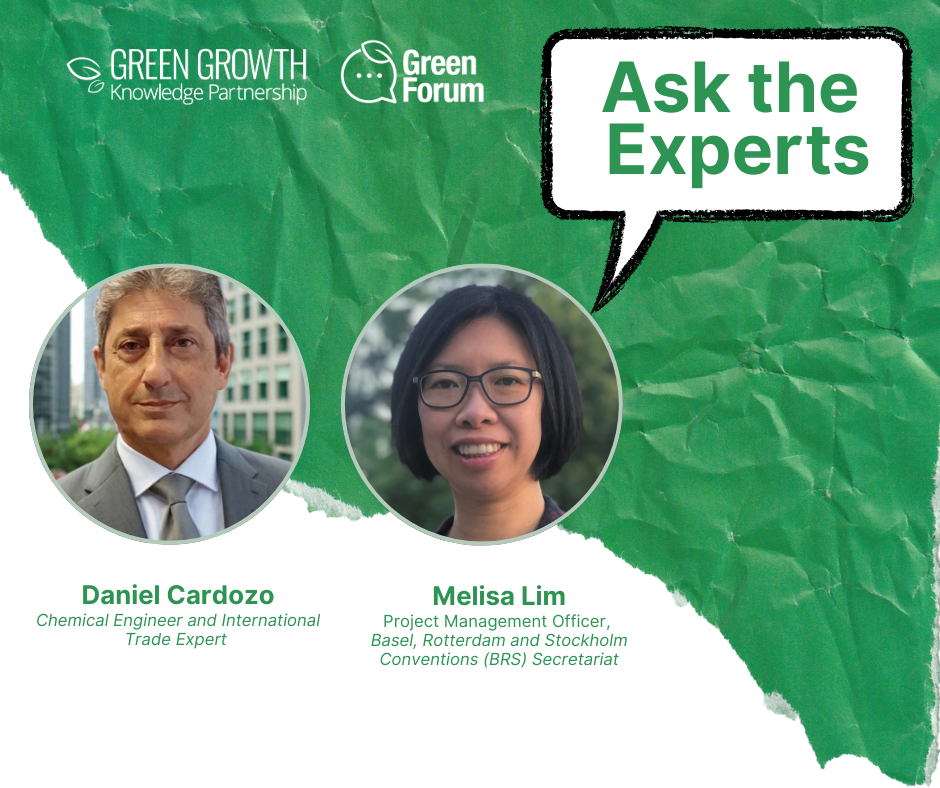This blog post is based on the remarks of Ms. Yuyun Ismawati on the Global Green Growth Knowledge Partnership (GGKP) roundtable “National Implementation Plans: Research needs and opportunities in Asia” held on 17 June 2025.
Civil society is increasingly recognised as a vital force in the global movement for a toxics-free future, and the International Pollutant Elimination Network (IPEN) stands at the forefront of this effort. The International Pollutant Elimination Network (IPEN) is a global network of over 600 public interest NGOs across 131 countries, based on science and driven by local priorities.
Linking Local, Regional, and Global Action
IPEN’s approach links local challenges and issues to regional and global efforts to prevent harm from chemicals and waste. Their theory of change operates from the ground up: work begins at the local, national, and regional levels, then is brought to the global stage such as the Stockholm Convention, before being translated back into national advocacy and adaptation.
IPEN’s annual reports in 2024 highlight progress in Stockholm Convention such as listing of new chemicals for global elimination of chlorpyrifos, medium-chain chlorinated paraffins (MCCPs), long-chain per- and polyfluoroalkyl substances (PFAS), and brominated dioxins that mainly originate from plastics and hazardous waste. The organisation actively participates as thePersistent Organic Pollutants Review Committee (POPRC) observer in the Stockholm Convention processes, supporting campaigns and implementation at both local and national levels. It also has contributed to meaningful advances in negotiations for a global Plastics Treaty.
“We are also happy to see that more and more delegates support the word health in Plastics Treaty negotiations. We were concerned at the beginning that no health issue has been mentioned, but in the last intergovernmental negotiating committee (INC) in Busan, we were so happy to see many delegates adopted the words that plastic treaty is a health treaty and this is strongly related to POPs chemicals.”
IPEN’s engagement extends to global frameworks and alliances, including the new Global Framework on Chemicals and the Global Alliance on Highly Hazardous Pesticides (HHPs), publishing reports on work by member groups in 43 countries. The network has also collaborated with the Endocrine Society to address the threats of endocrine-disrupting chemicals (EDC) from pesticides and plastics.
Advocacy for Rights and Health
IPEN’s advocacy is grounded in the principle of reducing risks and protecting rights, including the right to a safe, clean, healthy, and sustainable environment, the right to a safe working environment, the rights of Indigenous peoples, the right to know, and the right to science. The right to know is particularly important for IPEN, as public awareness about chemicals in everyday products is essential for informed choices and safety.
IPEN has brought greater attention to the everyday threats posed by harmful chemicals in plastics, with research documenting high levels of exposure among both recycling workers and high-ranking UN officials. The study used wristbands to detect chemicals in blood and have shown that even people working indoors can have high concentrations of POPs in their bodies, often from electronic gadgets and indoor sources. This research has been widely covered in major international media outlets.
Building Data and Collaboration for Global Impact
Over the past 20 years, IPEN has generated and shared global data on toxic plastics, producing more than 135 studies, reports, and policy analyses covering over 80 countries. The network collaborates with laboratories in Europe, the US, and Asia, and is expanding partnerships with regional institutions to increase the visibility and relevance of findings from Asia and beyond. IPEN’s ongoing work has contributed to the global ban and regulation of several harmful plastic chemicals, though challenges remain.
Towards a Toxics-Free Future
At the end of 2024, IPEN conducted a survey to establish its strategic plan for 2025–2030. The organisation will continue to reinforce a public health lens, push for open participation by civil society, and ensure that global decisions are translated into national programmes. With the new global commitment to eliminating HHPs, IPEN sees opportunities to advance bans on toxic pesticides in coming years.
IPEN will continue to leverage its expertise in research and capacity-building to address the growing threats from EDC, BFRs, and PFAS, and remains committed to being the leading civil society network protecting human health and the environment from toxic chemicals. IPEN welcomes further cooperation, partnerships, and collaboration with researchers and stakeholders to advance the campaign towards a toxics-free future.
IPEN’s work presents the power of civil society to drive change at every level, from local communities to global negotiations. By combining science-based advocacy, public awareness, and international collaboration, IPEN is helping to shape a future where health and environmental protection are at the centre of chemical policy. The journey towards a toxics-free world is ongoing and meaningful progress is within reach.
This blog post was developed drawing on insights from the GGKP roundtable “National Implementation Plans: Research needs and opportunities in Asia” held on 17 June 2025. As part of the Global NIP Update project (GEF ID 10785), funded by GEF and led by UNEP, this roundtable brought together researchers and experts engaged in reviewing and updating NIPs under the Stockholm Convention to foster peer learning on the development of POPs inventories.
To learn more about the Global NIP Update project, visit Global NIP Update | Green Policy Platform
For a deeper dive into the GGKP regional roundtable focused on Asia, you can access the full recordings and materials here: https://www.greenpolicyplatform.org/webinar/national-implementation-plans-research-needs-and-opportunities-asia
Authors:
 |
Ms. Yuyun Ismawati, International Pollutant Elimination Network (IPEN)/Nexus3 Foundation
|
 |
Ms. Soomin Bae, Knowledge Management Support Consultant (GGKP, GGGI)
|



